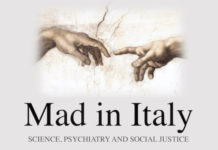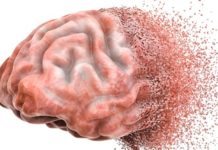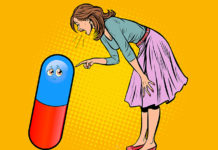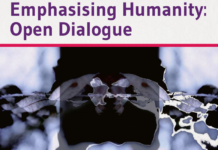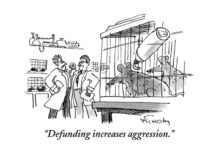Why Mad in Italy?
The Italian mental health system, like the majority of them around the world, struggles with accepting a model based on principles of Recovery, which highlights individual and communal mental health needs, social determinants of emotional distress, integration of physical and psychological care and quality of life.
Prepared, Yet Unprepared: My Involuntary Hospitalization Adventure
Overall I learned a great deal during my hospital adventure. The whole experience seemed like a comedy of errors. For me the only people there who were truly out of touch with reality were staff members. All of the patients were very present, albeit in some distress. The reasons for their distress were not unreasonable.
Traffic Pollution Linked to Anxiety and Depression in Childhood
New research explores the impact of exposure to traffic-related air pollution on levels of anxious and depressive symptoms in childhood.
Researchers Propose “Metaphor Analysis” for Understanding the Experiences of People who Hear Voices
A new study, published in the journal Psychosis: Psychological, Social and Integrative Approaches, explores ways that metaphor operates in the lived-experiences of individuals who...
The Creation of a Conceptual Alternative to the DSM: An Interview with Dr. Lucy...
MIA's Zenobia Morrill interviews Lucy Johnstone about the reaction to the Power Threat Meaning Framework, her life influences, and her hopes for the future.
Anticholinergic Psychiatric Drugs Linked to a 50% Increase in Dementia
People who take anticholinergic drugs, such as antidepressants and antipsychotics, are at a 50% higher risk of dementia.
UN Report Criticizes Biomedical Approach to Mental Health
UN official writes that States should focus instead on resolving social inequality and injustice as determinants of health and human rights.
Against the Odds: ‘Unimproved Schizophrenic’ to Yale PhD
Forty years after I had first been admitted to the hospital, I was ready to confront my past. So, I sent for my hospital records, and I read them. As an experienced clinician, I recognized immediately what the doctors hadn’t been able to see in 1960: my problem wasn’t ‘schizophrenia’ but PTSD, connected with incest.
A Guide to Long-Acting Neuroleptics: Education or Promotion?
The National Council for Behavioral Health has released a new pamphlet titled “Guide to Long-Acting Medications for Providers and Organizations.” By downplaying some aspects of the available science, the pamphlet implicitly acts as a promotional tool for the pharmaceutical industry.
Report Addresses Barriers to Voting for Those Diagnosed with Mental Disorders
People diagnosed with mental disorders face systemic barriers to exercising their right to vote.
Researchers Call for Integration of Social Risk Factors in Mental Health Care
An understanding of the importance of social risk factors in mental health outcomes has professionals calling for better models and integrated treatments.
The Pill Shaming Phenomenon: What’s It Really About?
At best, the underpinnings of the ‘pill shaming’ accusation are misguided. At worst, they represent a concerted effort on the part of the current power structure to use us against ourselves (and they don’t need any more help). It’s the same old story packaged up as if it were something new and ultra woke.
The Voices My Daughter Hears
The voices were extraordinary; in a way, they were like ghosts. I could not see them, but only divine them by the turmoil they stirred up in Annie. They were not polite house ghosts who knew when to leave; they were ne’er-do-wells she could not get rid of. They were tormentors and torturers, testing the limits of her sanity, blackmailing her into submission.
Study Links MDMA Use and Self-Reported Empathy
Users of the substance ‘MDMA’ are reported to have higher emotional empathy than users of other drugs.
Involuntary Hospitalization Increases Risk of Suicide, Study Finds
New study finds that people who felt they were coerced into being hospitalized were more likely to attempt suicide later.
Madness, Sexuality and Legacies of Strategic Sanism
There has been little engagement between the survivor and LGBT movements despite a shared interest in critiquing and resisting the normalization project of the psy disciplines — that is, psychiatry and psychology’s clinical categorization of what is ‘normal’ and ‘abnormal’ or ‘healthy’ and ‘sick’. Why might this be?
Lee Coleman – Breaking Out of the Circle: Creating a Non-Violent Revolution
An interview with Doctor Lee Coleman in which we turn our attention to the need for action to address the inherent power held by psychiatry and how society might respond.
“Three Identical Strangers” and the Nature-Nurture Debate
Three Identical Strangers is a riveting film describing the story of identical triplets separated at six months of age and reunited in early adulthood. Their story provides no evidence in support of the genetic side of the nature-nurture debate, but it does supply some evidence in favor of the environment.
Parent Training as Effective for Childhood Anxiety as Therapy
Yale study finds that training parents how to react to child behaviors is as effective at reducing anxiety as providing therapy to the child.
Biomedical Model of Mental Illness Creates Stigma for College Students Using Services
A study conducted on college-aged students finds strong correlations between biomedical characterizations of mental illness, pharmaceutical treatment, and social stigma.
Study Finds Mixed Results for Peer-Supported Open Dialogue in the UK
New qualitative study seeks to examine the implementation of the Open Dialogue approach in the UK.
To Warn or Not to Warn? A Critique of MIA’s Use of Diagnostic Terminology
I have concerns about how Mad In America deals with diagnostic terminology. When psychiatric diagnoses are used without signaling that they are constructs and unscientific, I feel alarmed for those who will be strengthened in their mistaken beliefs about the labels.
Researcher Critiques Misleading Claims About Antidepressants
Recent claims about antidepressant effectiveness have been based on misleading statements and misunderstandings of the science.
Bipartisan “RISE from Trauma Act” Introduced to Address Childhood Trauma in America
The Resilience Investment, Support, and Expansion (RISE) From Trauma Act, legislation designed to increase support for children who have been exposed to Adverse Childhood Experiences, includes $50 million in funding for a “mental health in schools” program. Exactly what these programs would entail remains unclear.
The Role of Acculturation in Racial Trauma
In the American Psychologist, researchers argue that the process of acculturation often involves racist ideologies, leading to racial trauma.

